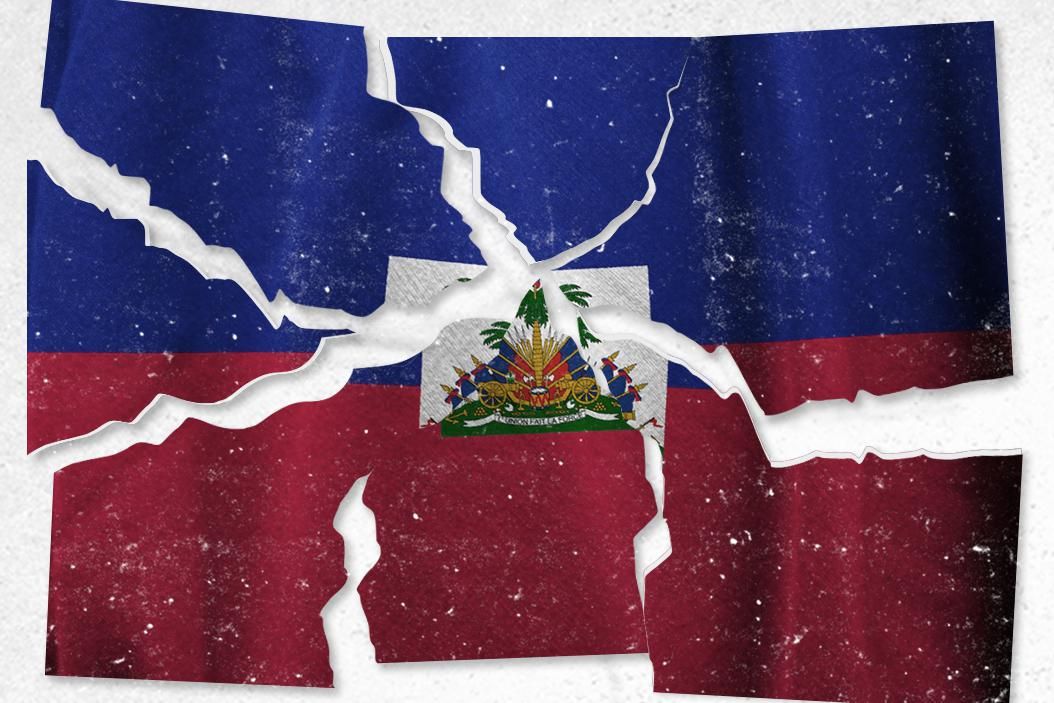September 16, 2021
No country in the Western Hemisphere is more closely associated with disaster and misery than the Caribbean nation of Haiti. Its latest upheaval centers on news that the country's top prosecutor wants Haiti's prime minister to answer questions about the murder of the president in July. Haiti is again locked in a power struggle among competing factions within its ruling elite.
Why is Haiti still so poor and disaster-prone?
Look to its history. After a bloody and destructive 13-year fight, Haiti, then called Saint-Domingue, won independence from France in 1804. This was the first successful slave rebellion in the modern world, and that accomplishment unnerved leaders in Europe and the newly created United States, who feared slave uprisings in their own countries.
As a result, a land that had once supplied colonial master France with enough sugar, coffee, cocoa, tobacco, cotton, and indigo dye for sale across Europe to constitute half of France's gross national product was then faced with an international economic boycott.
The resulting economic crisis forced the new nation's leaders to accept French demands for payment of some $21 billion in reparations for lost colonial property. The Haitian government had little choice but to pay, and it borrowed heavily from French, German, and American banks to finance the debt.
Fears that Haiti would default led the newly expansive United States to respond to political upheaval in 1915 by sending in Marines. This began an occupation of the country that lasted until 1934. Washington kept control of Haiti's finances until the debt was fully repaid in 1947.
During the Cold War, the United States guarded against Communist influence in Haiti, which became an even higher priority after the revolution in neighboring Cuba brought Fidel Castro to power in 1959, by supporting the dictatorship of François, and then Jean-Claude, Duvalier from 1957-1986. The anti-Communist father and son killed tens of thousands of Haitians and stole hundreds of millions of dollars.
For decades, elites backed by outsiders controlled most of Haiti's productive land and stole much of the aid money sent to alleviate poverty and help the country recover from disasters.
And there are plenty of disasters to recover from, because Haiti, caught between North American and Caribbean tectonic plates, is prone to earthquakes. In 2010, a large quake killed 220,000 people and displaced 1.5 million.
The island of Hispaniola, which Haiti shares with the Dominican Republic, is also situated in "hurricane alley," an area of warm Caribbean water that forms an ideal path for deadly hurricanes.
Haiti is far more vulnerable to natural disasters than the DR and other of its neighbors because crippling debt and political corruption have left little money for investment in the kind of physical infrastructure that can withstand those disasters or for the government to spend to rebuild.
Haitian politics is mostly a fight to control access to money entering the country and the land that produces wealth via agricultural exports. Haiti doesn't have revolutions; it has coups. Reformers who threaten vested interests become targets for deadly violence.
Not surprisingly, a number of academic studies over the years have found that "brain drain," the exodus of the nation's best and brightest to other countries in search of better opportunities, has further stunted Haiti's development.
It's the accumulation of all these problems that leaves Haiti, now home to 11 million people, the poorest country in the Western Hemisphere and a land in perpetual crisis. And there's little public support in other countries for the large-scale investment — and the commitment of troops needed to protect it — that Haiti would need for decades to come.
For now, Haiti's turmoil continues.
More For You
- YouTube
In this episode of GZERO Europe, Carl Bildt examines how an eventful week in Davos further strained transatlantic relations and reignited tensions over Greenland.
Most Popular
- YouTube
In this Quick Take, Ian Bremmer addresses the killing of Alex Pretti at a protest in Minneapolis, calling it “a tipping point” in America’s increasingly volatile politics.
Two Iranian motorcyclists stop in front of the burned East Tehran General Directorate of Tax Affairs headquarters in Tehran, Iran, on January 21, 2026.
Photo by Morteza Nikoubazl/NurPhoto
30,000: The estimated death toll in Iran during the protests at the start of the year, per local health officials, underscoring the scale of the Islamic Republic’s crackdown on its own citizens.
© 2025 GZERO Media. All Rights Reserved | A Eurasia Group media company.
